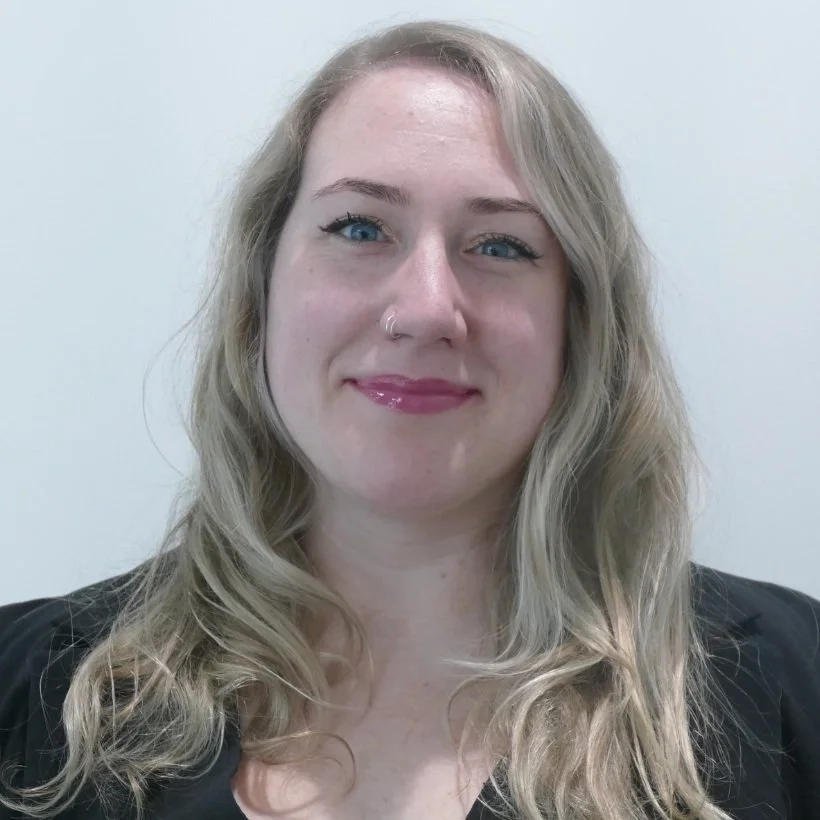This webinar will explore the crucial role of lived experience in transforming health and social care systems. Based on insights from Imroc’s briefing paper, we will examine how lived experience roles contribute to service design, delivery, and leadership, enhancing inclusivity, effectiveness, and cultural change. We will discuss the challenges, opportunities, and strategies for embedding these roles meaningfully within organisations to drive lasting impact. Whether you are a professional, policymaker, or someone with lived experience, this session will offer valuable perspectives on co-production and systemic transformation.
What to Expect:
Health and social care systems are evolving, and lived experience voices are playing a crucial role in this transformation. But how can organisations fully embrace and support these roles?
The strategic value of lived experience in service development
Common challenges and solutions for embedding these roles
Practical steps for creating an inclusive, co-produced future
Key Takeaways & Benefits of Attending:
Understand the Value of Lived Experience – Learn how lived experience roles enhance service design, leadership, and decision-making in health and social care.
Insights from the Latest Research – Gain key findings from Imroc’s briefing paper on integrating lived experience roles for meaningful impact.
Overcoming Challenges – Explore common barriers to embedding lived experience in organisations and discover practical solutions.
Co-Production in Action – Learn best practices for implementing co-production and participatory approaches at all levels of service delivery.
Strategic Workforce Development – Discover how lived experience roles can support diversity, inclusion, and workforce transformation.
Leadership & System Change – Understand how lived experience perspectives can drive innovation and cultural change in health and social care.
Network with Experts & Peers – Connect with thought leaders, professionals, and individuals with lived experience to exchange ideas and insights.
Registration info
To book a free place email: events@imroc.org
Deadline for registration: Friday 2nd May
Speakers & Guests
Danny Bowyer - Chair
Danny Bowyer is a dedicated mental health advocate and Peer Support (Mental Health) Programme Lead at Imroc, where he advances peer support initiatives across health and social care.
His journey into peer support began over 12 years ago when he was first supported by a peer worker—an experience that shaped his career. He later trained as a peer support worker, working in a recovery college and training others in the field.
At Imroc, Danny leads the design and delivery of peer support training, focusing on lived experience, recovery principles, and systemic influences on mental health. He has also contributed to supervision models that address the unique challenges of peer workers.
A regular speaker at conferences, Danny shares insights on embedding peer support within mental health services. Based in Peterborough, he continues to advocate for recovery-focused approaches in mental health care.
Deb Owen
Deb Owen is a Senior Consultant at ImROC and the Peer Support Lead at Sussex Partnership NHS Foundation Trust (SPFT). Transitioning from a publishing career, she found stability and passion in peer support, balancing her professional life with mental health experiences. An avid choir singer since school, Deb values the creativity and unity it brings. As a qualified coach, she regularly engages in practices that foster innovative thinking.
At SPFT, Deb collaborates with her team and fellow Peer Leads to develop strategies and share best practices, taking pride in their peer-led workforce development. She has extensive experience in involvement, co-production, training, public speaking, and facilitation. Committed to empowering individuals facing adversity, Deb advocates for inclusive solutions within services and communities, striving to dismantle 'them and us' mentalities through open dialogue and mutual understanding. Her aspirations include advancing mental health services to help individuals achieve their goals and, on a personal note, living in a mountain village in Italy.
Mel Ball
Mel began her career as a peer worker in a therapeutic community, supporting groups in both residential and outpatient settings. She has since worked extensively across diverse voluntary, community, and NHS organisations, including roles in CAMHS, adult inpatient and community mental health, high secure services, and prisons.
Nationally and internationally recognised, Mel is experienced as a public speaker, trainer, researcher, supervisor, and consultant, collaborating regularly with health commissioners, NHS Trusts, and NHS England. Her academic contributions include teaching at universities and publishing on lived experience topics, notably co-authoring ‘Raising the glass ceiling: Considering a career pathway for peer support workers’ for Health Education England/NHS England.
For five years, Mel led one of the NHS's largest lived experience workforces as Head of Lived Experience Workforce at Central and North West London NHS Foundation Trust. She is also a qualified Open Dialogue Practitioner, passionate about systemic and collectivist approaches to health.
Since 2023, Mel has served as the NHS’s first board-level Director for Lived Experience at Midlands Partnership NHS Foundation Trust and chairs the NHS Midlands Lived Experience & Coproduction Leaders Forum.
Chris Morton
Chris Morton is the Lived Experience Director at Tees, Esk and Wear Valleys NHS Foundation Trust (TEWV). He leads the organization in embedding lived experience as a core value, guided by his own significant experience of mental distress.
Chris is a PhD student at the University of Hertfordshire, researching lived experience leadership in public services. Previously, Chris specialized in early intervention in psychosis as a social worker and a manager, driven by his personal lived experience. He has advanced CBT training in psychosis and taught recovery theory at Oxford Brookes at the master's level.
Since 2016, he has focused on embedding lived experience, starting with peer support. His personal experiences have driven his efforts to be part of developing and embedding lived experience and peer support in mental health and autism services. Passionate about improving mental health outcomes where the person is centre to care, Chris is dedicated to creating environments and cultures that are collaborative, compassionate, safe and innovative of learning, empowerment, and co-production.




